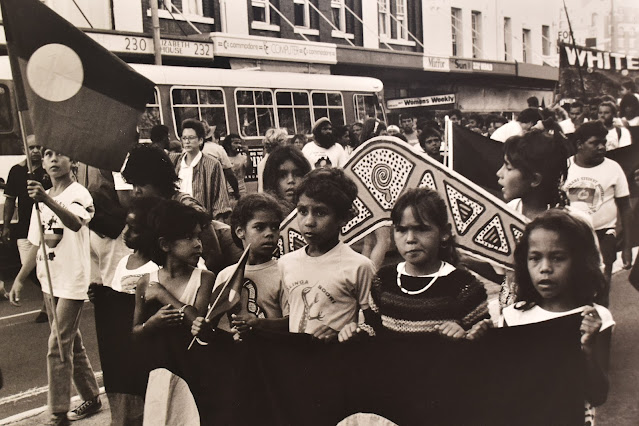%20%20Credit_Kate%20Longley%202025.jpg) |
| The Nutcracker - The Australian Ballet |
THE NUTCRACKER Act 11 and other works. The Australian Ballet
-Orange Civic Theatre
Choreography by George Balanchine, Lucy Guerin and Paul
Knobloch
Music by Peter Ilyitch Tschaikovsky, Alfred Schnittke, Daniel
Avery & James Greenwood.
Set Design by Kat Chan – Lighting Design by Ronald Bates, Perry Silvey, and Paul Lim.
Costume Design by Karinska, Kate Davis, Kristian Fredrikson, Hugh Colman, Hugh Liang & Louisa Fitzgerald.
Orange Civic Theatre, June 28th 2025. Reviewed by
BILL STEPHENS
%20Mio%20Bayly_Adam%20Elmes%20Credit_Kate%20Longley%202025.jpg) |
| "Diamonds" - Mio Bayly & Adam Elms |
2025 is a year for celebrating dance milestones. The
Canberra Theatre Centre last week marked the 60th year of its establishment
by presenting The Australian Ballet’s production of “Carmen”.
The Orange Civic Theatre is also celebrating 50 years since its
establishment with a program by The Australian Ballet; “The Nutcracker Act 11
and other works”.
And to add further to the synchronicity, it is with this
program that the Australian Ballet is having its own celebration: 40 years of touring regional centres with programs
featuring dancers of the Australian Ballet together with dancers from the
Australian Ballet School, for which the centrepiece is a re-imagining of The
Nutcracker Act 11 by former Canberra dancer and choreographer, Paul Knobloch.
%20Belle%20Urwin_Alain%20Juelg%20Credit_Kate%20Longley%202025.jpg) |
| "Allegro Brillante" Belle Unwin & Alain Juelg |
I was fortunate to be able to attend both performances of
this program which commenced with a sparkling performance of George
Balanchine’s “Allegro Brillante”, a ballet which the choreographer famously
described as being ‘everything I know about classical ballet in thirteen minutes.
Balanchine's ballet demands strong dancing and precise
timing as it explores choreographic development. It compresses extended
classical vocabulary into restricted time and space.
Performing to Tchaikovsky’s Piano Concerto No. 3, with Belle
Unwin and Alain Juelg (matinee) and Samara Merrick and Henry Berlin (evening), dancing
the virtuosic principal roles; the ten dancers performed the ballet with such
joie de vivre that the challenging intricacies simply looked like fun.
%20Mio%20Bayly_Adam%20Elmes%20Credit_Kate%20Longley%202025%20(1).jpg) |
| "Diamonds" Adam Elms & Mio Bayly |
Another Balanchine masterpiece followed. This time the grand
pas de deux from ‘Diamonds’, the third act of his masterpiece “Jewels”. Stylishly
performed by Mio Bayly and Adam Elmes (matinee) and Alexandra Walton and
Harrison Bradley (evening), both couples invested the demanding choreography with
the solemnity and attention to detail befitting its Imperial Russian style.
Both ballets were enhanced by being danced in the elegant
costumes designed for them by Balanchine's renowned designer, Karinska.
.jpg) |
| Ground Control - Belle Unwin -Harrison Bradley - Alexandra Walton - Alain Juelg |
A complete break in style came with “Ground Control” a brand-new
work created especially for this tour by Lucy Guerin.
Four dancers, Alexandra Walton, Belle Unwin, Harrison
Bradley, and Alain Juelg (matinee) and Samara Merrick, Mio Bayly, Henry Berlin,
and Adam Elmes (evening) evening, displayed their versatility by demonstrating
Guerin’s playful exploration of how to exist between the pull of gravity and
the effort to escape it.
Ground Control commenced with the four dancers, each costumed
individually by designer, Kate Davis, absorbed in executing unique movements to
a persistent driving soundtrack.
Their activity was interrupted by a red veil floating from
the ceiling, heralding sounds from a heavenly choir and a complete change of
mood and movement style.
%20Alexandra%20Walton%20Credit_Kate%20Longley%202025.jpg) |
| Ground Control - Alexandra Walton - Alain Juelg |
One couple performed a pas de deux entwined in the veil, then
the others joined in for a series of solos and group dances until the work resolved
in a mesmerising conclusion.
As captivating as it was unexpected, the work received enthusiastic
responses from both audiences.
The major work of the program was Paul Knobloch’s enchanting
re-imagining of Act 2 of “The Nutcracker”.
Grounding his choreography in the Petipa original, Knobloch
has refashioned the familiar second act of this ballet favourite into a
stand-alone work clarifying the storyline to be enjoyed without knowledge of
the events that originally led Clara visit to the Kingdom of the Sweets. He has
also reworked the character dances so that Clara participates in them rather
than simply observing.
Kat Chan’s pretty, abstract setting frames the activity,
with a lavish appearance being achieved by interpolating historic costumes
designed by Kristian Fredrikson, Hugh Colman and Hugh Laing for previous
productions among lovely new costumes designed for the Floral Fairy, the Mirlitons
and others by Louisa Fitzgerald.
The character dances were thoughtfully restaged, and
beautifully danced to produce many stand-out moments. However, Gracie Clark's
rendition of the Arabian dance was particularly extraordinary at both
performances. Her serene presence and beautiful line, along with the
attentiveness of her attendants Paddy Lum and Rory Taylforth made this divertissement
a captivating highlight.
Based on the talents demonstrated by these young dancers,
Australian Ballet audiences can look forward to many more exciting performances
like these in theatres around the country.
%20Belle%20Urwin_Alexandra%20Walton_Harrison%20Bradley_Alain%20Juelg%20Credit_Kate%20Longley%202025.jpg) |
| Ground Control - Belle Unwin - Harrison Bradley - Alexandra Walton - Alain Juelg |
Photos by Kate Longley
This review published in the digital edition of CITY NEWS on 1st July 2025

%20-%20Anto%20Hermida%20(Gerald).jpg)
%20-%20Maxine%20Eayrs%20(Laura)%20-%20Antpo%20Hermida%20(Gerald)%20-%20Sachin%20Nayak%20(Norm)%2052.jpg)
%20-%20Jess%20Beange%20(Corky)%2042.jpg)
%20-Maxine%20Eayrs%20as%20Laura.jpg)
%2057.jpg)
%20%20Credit_Kate%20Longley%202025.jpg)
%20Mio%20Bayly_Adam%20Elmes%20Credit_Kate%20Longley%202025.jpg)
%20Belle%20Urwin_Alain%20Juelg%20Credit_Kate%20Longley%202025.jpg)
%20Mio%20Bayly_Adam%20Elmes%20Credit_Kate%20Longley%202025%20(1).jpg)
.jpg)
%20Alexandra%20Walton%20Credit_Kate%20Longley%202025.jpg)
%20Belle%20Urwin_Alexandra%20Walton_Harrison%20Bradley_Alain%20Juelg%20Credit_Kate%20Longley%202025.jpg)







